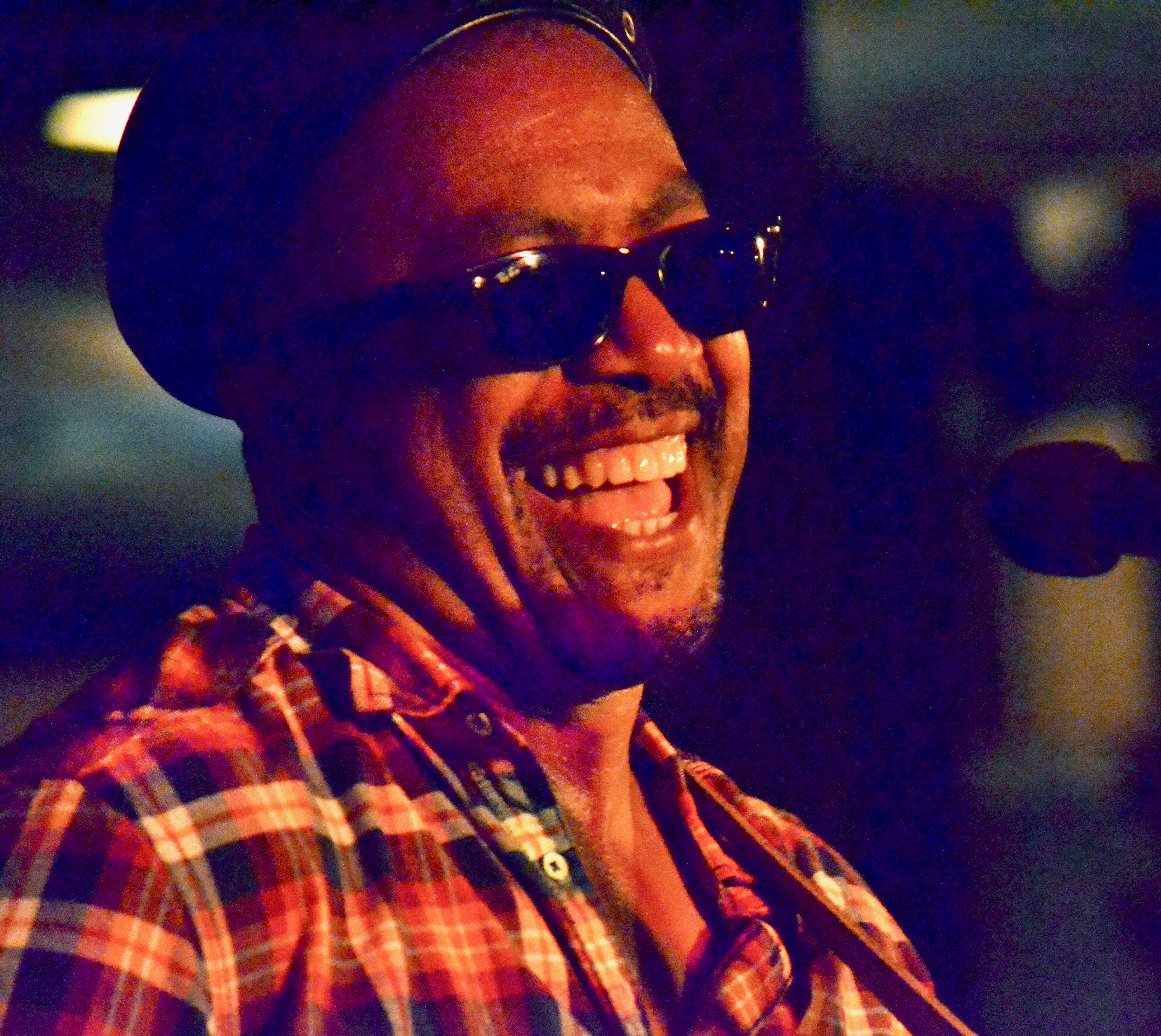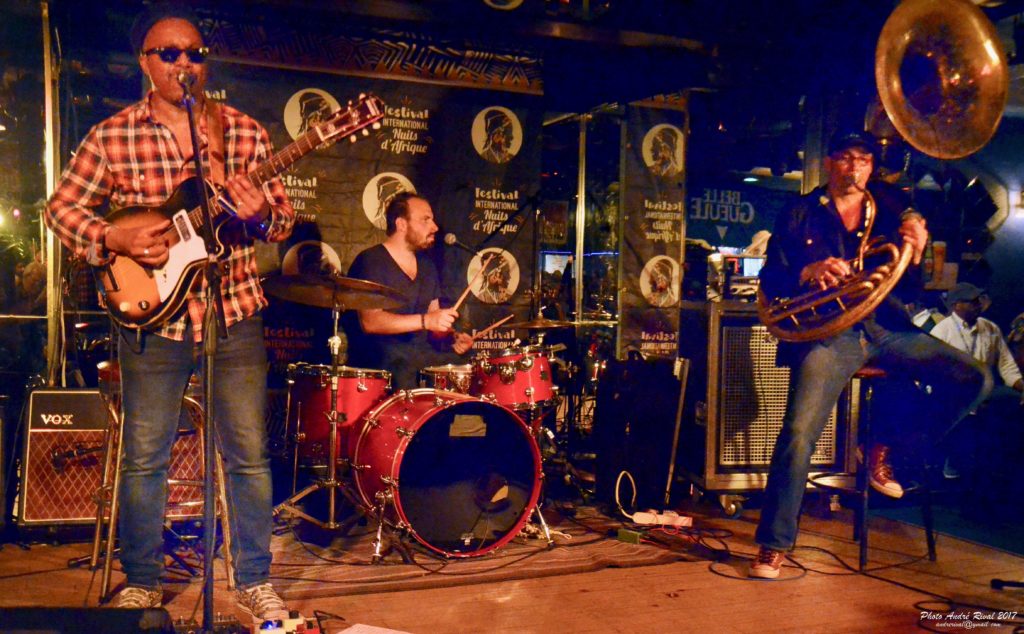One of the stand-out performances at this year's Nuits d'Afrique Festival in Montreal was the Paris-based trio Delgres. The group was conceived and is led by guitarist Pascal Danaë, with Rafgee on sousaphone, and Baptiste Brondy on drums and backing vocals. We spoke with Danaë via telephone a few days later while the band was on tour in Rochester, MN.
Born and raised in Paris by Guadeloupean immigrants, Danaë, 53, first took up the guitar at 15, during a boring summer with his parents when his brother-in-law offered him one of his guitars to help while away the time. “He said to me: O.K., it's yours. Use it, don't use it, whatever you like,” Danaë recalls. “I will never thank him enough for that in trusting a young teenager with his guitar. That was fantastic. It was the start of everything.”
Although Danaë had already been exposed to a great variety of music, from Caribbean to classical, the Beatles to James Brown, it was American folk music that he was drawn to play at first. “Because,” he explains, “when you play guitar, it's very easy. There's only a few chords. And I don't know, it just takes you somewhere. You're a young guy, you're in your bedroom, you have your guitar and you can escape, to travel in your head. Especially Bob Dylan and all those guys. They really help you travel. I think since then I've kind of always stayed in the same thing. It's always what I'm looking for. When I grab my guitar and I'm alone in my room—it could be anywhere —I always want to close my eyes and travel in my head. Most of the time this place I go it's nature, open space... it's kind of Minnesota,” he laughs, “or Vancouver, we were just there too.”
After jamming with local bands for a few years, his brother-in-law stepped in again, this time introducing him to a professional guitarist who gave him some lessons and helped guide him into a career as a session musician, eventually touring and recording with such artists as Peter Gabriel, Youssou N'Dour and Harry Belafonte. “Playing with Harry Belafonte happened because a very good friend of mine is [Cameroonian] Richard Bona, the bass player” who was Belafonte's musical director at the time, Danaë says. “Peter, too, is one of my heroes. We met through [Ivory Coast drummer] Manu Katché, who is another friend, who played with Peter Gabriel and Sting and guys like that. We had a house band which we played a few concerts on our own in Switzerland. It was Manu Katché, I was on guitar, and David Rhodes, who also plays in Peter Gabriel's band. So Manu introduced me to Peter Gabriel and I was just speechless, you know, the basic fan. I'm not usually the fan type, but there are a few people that I have so much respect and admiration for what they've done, you know, just fantastic. So yeah, I was lucky enough to be on a stage with him.
“When I look at it now,” Danaë adds, “all these years, even when I was playing for other people, I was always writing songs and doing my own stuff. So I really feel that all those guys I played with, the experience I gained along the years, was just a way to take me to this very place where I am now. I couldn't have done the same thing today without being on stage with all these people and learning how it works, kind of what to do and what not to do—but, of course, I still have to learn a lot of things.”
In addition to songs he wrote on his own, he has also co-written a few with a variety of musicians, including British electronica group Morcheeba, Israeli singer-songwriter Yael Naim, and Algerian singer-songwriter Souad Massi, including "Tell Me Why," on which he and Massi sing a duet.










